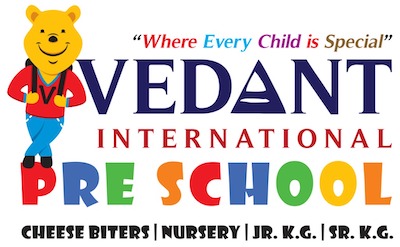This program is to meet the need of the child in different areas:
- Care of self
- Care of the environment
- Sensorial development
- Hand-eye coordination
- Language development and enrichment
- Art
- Music
- Natural science experiences
- Gross motor movement
- Fine motor movement
- Social relationships
General schedule of a Parent and Toddler Session
Welcome and Free Play 20 minutes
Toddlers and parents are welcomed into a warm, beautifully organized classroom with light music playing in the background. This time is designed for children to channelize their energy and settle down into the school environment.
Circle Time 10 minutes
Circle time is the child and parent’s first introduction to a daily routine. Parents and children sing rhymes, do stretching and yoga, read-aloud stories, and recall special moments.
Station Time 30 minutes
Station Time is planned by educators to provide children with opportunities to explore, build skills, and pique their curiosity in different areas. Educators design 3 to 4 stations centred around sensory exploration, fine motor skills, read-aloud, yoga/exercise and art and design explorations.
Sensory or Outdoor Play 25 minutes
children spend 25 minutes everyday in the indoor or the outdoor play area participating in activities focused on strengthening their physical skills activities During this time, parents and children immerse in a range of activities all designed to promote physical development.
Reflection Time 5 minutes
Closing time is an opportunity for parents to share their feedback on the day and for educators to share learning strategies that parents can use at home.
Parent Toddler Learning Spaces
Sensory play station
The sensory play station is every child’s favourite space at Vedant International Preschool. It is filled with open-ended and structured challenges that change every week. These challenges bring a parent and child closer as they participate in activities together. They learn to twist, turn, roll, jump, run, balance, and hop.
Outdoor Play Spaces
Outdoor play area is equipped with 3 types of outdoor spaces – active, social, and experimental. In the active play area, children have access to open-ended play equipment where they develop their gross-motor skills through crawling and climbing on mounds. The outdoor social area is an interactive and collaborative space with a sand pit, and a pretend play area. In the experimental outdoor area, children experiment with materials that evoke their multiple senses
Art and Design Station
The art and design station, allows children to engage with a range of tools and materials to explore textures and create expressive arts and crafts. Children explore a range of paints such as powder, poster, acrylic, dye, and oil paints and tools such as stamps, sponges, and rollers. They also explore natural materials like clay slurry, leaves and branches, and natural colours from plants.
Sensory Station
The sensory station is equipped with an assortment of materials that stimulate the five senses. Interesting wall and interactive installations as well as natural, synthetic, and Montessori materials are a part of this station. These sensory experiences are an opportunity for children to express their emotions and interests. Designed to deepen a child’s conceptual understanding of the world, this studio allows children to immerse in smelling and tasting experiences, listening activities, and touch and feel games.
Block Station
The block studio is an opportunity for toddlers to involve their parents in their favourite play time. Equipped with child-friendly blocks of different sizes, shapes, and textures, the station encourages children to tinker and recreate their thoughts and interpretations of the world. The space features Lego blocks, spiral blocks, tube blocks, tan-grams, 3D and 2D puzzles, foam blocks, magnetic blocks and much more.
Story time Station
The Story time Station is a reef of imagination and calm in the classroom. Here, parents and children have access to a world of books ranging from texture books and picture books, to block-based books. Read-aloud are an integral part of this station and help children enhance their vocabulary and their understanding of the world. Parents hold their toddler’s hand to purposefully listen as well as support them in pronunciation of simple words. Educators use music and movement to support children in their pronunciation of simple
Exercise /Yoga Station
Educational yoga for kids where even small children and their parents will be able to learn to relax in a different way. Through a fun story with animals, kids will practice different yoga poses and work on their breathing relax into a power down. it helps them to illustrate yogic values such as peace, love, friendship, feeling etc… basically doing anything to enhance their physical and emotional awareness.
The role of the adult in class
- Observe all the children as well as their own.
- Let the child choose his/her own activities at one time.
- Refrain from assisting – allow the child to do everything for themselves. At first a parent might need to be close to their child, but once they are engaged they can move back and sit to observe.
- Always ask a child before intervening “may I help you?”
- Keep adult noise low. Use a low tone of voice.
Sometimes a parent/carer will be actively participating in activities with their child and other times they will be in the background observing. Either way, this is a time to enjoy the peace away from the pressures of the rest of the day and to be together with other parents and children building a foundation in Montessori education.
As parents/carers learn a little more each week they are able to observe how their child is growing and changing with additional knowledge and respect.
